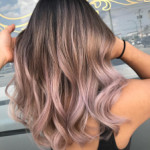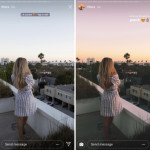If a typical day finds you blasting your headphones, shouting over the din at dinner, and blaring the TV, this will come as no surprise: "Hearing loss is now a growing epidemic among women in their 30s and 40s," says Douglas Backous, MD, medical director of the Center for Hearing and Skull Base Surgery at the Swedish Neuroscience Institute in Seattle. Even in the quietest places, we can face unrelated issues, like infection, vertigo, and congestion. All ears now? Follow our guide to caring for and protecting this key organ.
RELATED: Famous Celebrities with Hearing Loss
Problem No. 1: Hearing loss
The lowdown: This isn't a concern just for drummers and construction workers. "Even having earbuds at full blast while you're running every day can cause permanent damage over time," says Eric Smouha, MD, director of otology and neurology at Mount Sinai Hospital in New York City. "Intense exposure to sound causes wear and tear on the hair cells in your cochlea."
What it feels like: Conversations are muffled; you may notice that you're asking people to speak more slowly or repeat themselves. "If you turn the TV volume up so high that others complain about the noise, that's a red flag," says Barry Hirsch, MD, director of the division of neurotology at the University of Pittsburgh Medical Center.
Rx: See your doctor. The first step is to check your ears–wax may simply be blocking sound waves from entering your ear canal. Otherwise, you'll be referred to an audiologist for a hearing test. "If you have trouble hearing sounds above 25 decibels [dB], it's considered hearing loss and needs to be thoroughly evaluated," says Sarah Sydlowski, PhD, an audiologist at the Cleveland Clinic. While there's no way to reverse noise-induced hearing loss, mild forms can be treated with an assistive listening device. If your loss is more pronounced, you'll need a hearing aid.
For people who are not a candidate for hearing aids, personal sound amplification products (PSAPs) have improved challenging situations like hearing conversations in noisy places. You might want to consider a product like Bose Hearphones, conversation-enhancing headphones that can help take the edge off background noise.
To keep your hearing healthy, use earplugs whenever you're in a noisy situation–say, a concert or football game. "And when you're listening to tunes, keep the volume at the halfway point," Sydlowski says.
RELATED: Is Loud Music in Workout Classes Bad for Your Ears?
Problem No. 2: Pressure changes
The lowdown: You know that awful ear pop (the one your kids shriek about) as the plane you're in starts to descend? It has a fancy name–barotrauma. "The air pressure in your middle ear is usually the same as the air pressure outside your body," Dr. Hirsch explains. But when you're landing, the cabin pressure increases…






 D5 Creation
D5 Creation